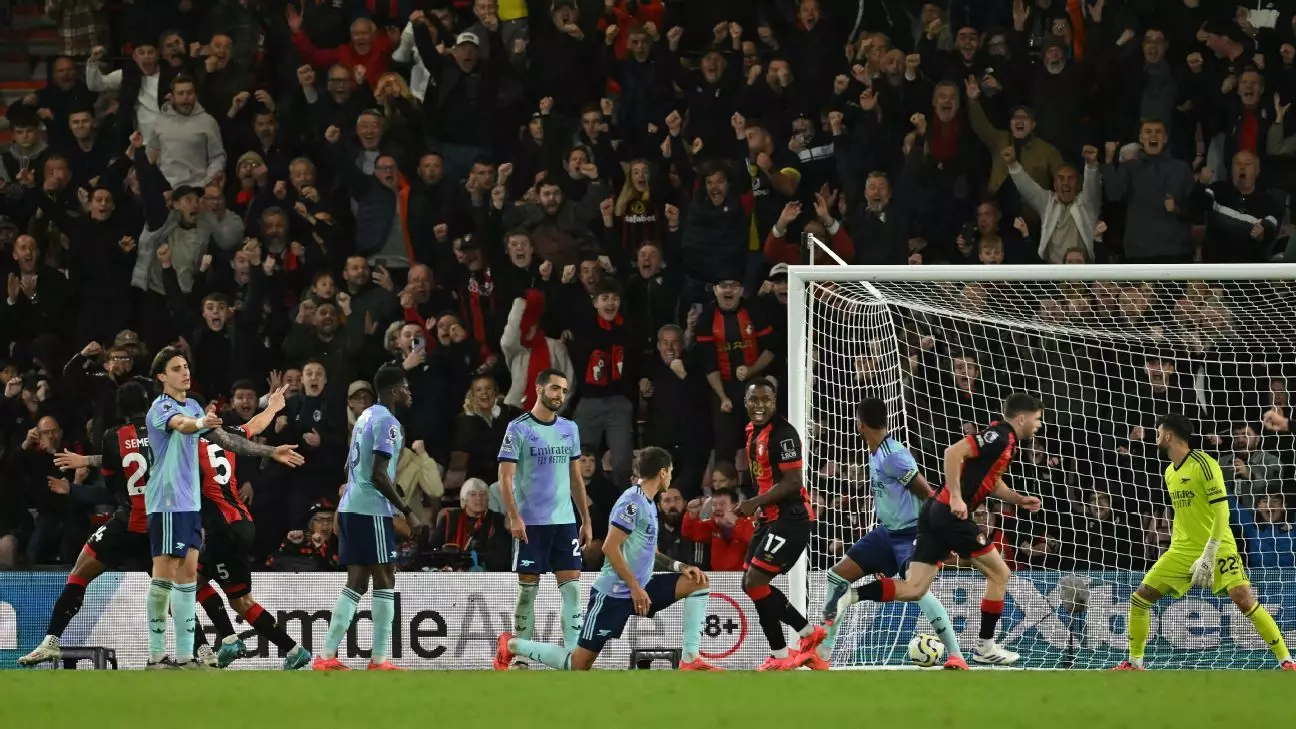Following Arsenal’s disappointing 2-0 defeat against Bournemouth, Declan Rice did not hold back in addressing the team’s “naivety.” This critique is significant, especially as it came after Arsenal faced their third red card of the season—an issue that undoubtedly raises questions about discipline and strategic decision-making. The incident at Vitaly Stadium was pivotal, occurring when William Saliba received a red card after an initial yellow, a decision that emphasized the fragility of Arsenal’s current situation.
Rice’s commentary underscores a sentiment that is becoming increasingly familiar to supporters and analysts alike; despite moments of promise, the team repeatedly undermines its efforts through preventable mistakes. He noted that this was not the first instance of the team “kicking themselves in the foot,” indicating a pattern of reckless play. This acknowledgement from one of the squad’s new leaders suggests a growing frustration within the ranks, where missed opportunities and early exits from games can sap confidence and momentum.
In the match itself, Arsenal started strong, but the dismissal of Saliba shifted the balance, enabling Bournemouth to seize control. The ensuing attempt by Arsenal to maintain their composure was commendable. Still, their inability to remain composed under pressure exposed vulnerabilities that opponents are keen to exploit. Rice highlighted the pivotal moment when Gabriel Martinelli failed to convert a golden opportunity—an instance that epitomized Arsenal’s larger difficulties in attacking fortitude. It was a chance that, had it been taken, could have dramatically altered the game’s outcome.
Bournemouth capitalized on their advantage, with Ryan Christie eventually breaking the deadlock in the 70th minute, amplifying Arsenal’s plight. The subsequent penalty that sealed the scoreline only served to underline how critical the implications of early, reckless actions can be in high-stakes matches.
Mikel Arteta’s Dilemma
In reflecting on the game, Arsenal manager Mikel Arteta echoed Rice’s sentiments regarding missed opportunities. His acknowledgment of their inability to convert critical chances reveals an understanding that talent alone cannot secure victories without discipline, focus, and tactical savvy. The team is grappling with the consequences of these errors, which he categorized as distinct, suggesting that while the repeated occurrences of red cards display a trend, the rationale behind each incident was unique.
Arteta’s frustrations are compounded by the palpable potential within the squad, which has yet to translate into consistent performances. Each match is a test of resilience, and though the effort shown by the ten players on the field was praiseworthy, it becomes a futile exercise without the necessary composure to leverage their advantages.
Despite the setbacks, both Rice and Arteta have called for unity and a collective focus on improvement. Rice’s faith in the team’s ability to stick together and learn from their mistakes will be crucial as they move forward. As the season progresses, it is imperative for Arsenal to address these issues assertively, understanding that it is indeed the small details—both in terms of discipline and execution—that can dictate the broader narrative of their campaign.
The pressure will mount as they continue to compete in a league where every point matters significantly. Arsenal’s future performance will rely not just on talent, but on their capacity to transform their mindset, ensuring that naivety does not continue to overshadow their potential.
